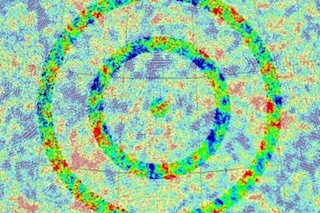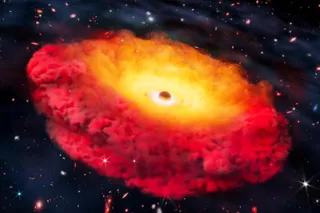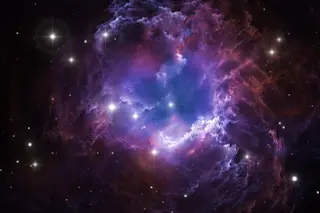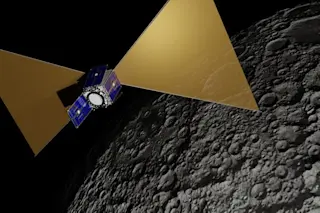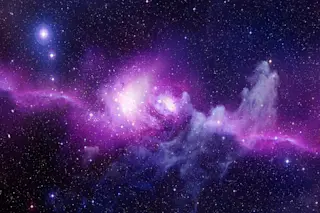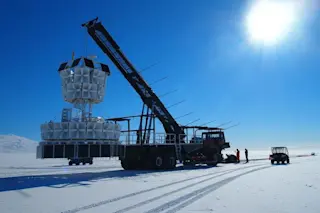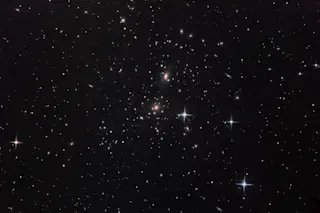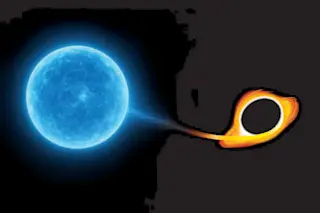The Big Bang was not the beginning, Roger Penrose believes. The eminent Oxford physicist has long advocated the wild idea of "conformal cyclic cosmology," a cyclical universe without beginning or end in which the Big Bang 13.75 billion years ago was simply one of many. This month, Penrose pushed his idea further: His team says it has detected a pattern in the cosmic microwave background—radiation left over from just after the Big Bang—that represents the echo of events that occurred before the Big Bang itself. Penrose examined the data from the Wilkinson Microwave Anisotropy Probe (WMAP), the mission that just completed nine years of surveying the cosmic microwave background across the sky. His study points to concentric circular patterns in the WMAP data where he says he found something surprising:
The circular features are regions where tiny temperature variations in the otherwise uniform microwave background are smaller than average. Those ...


